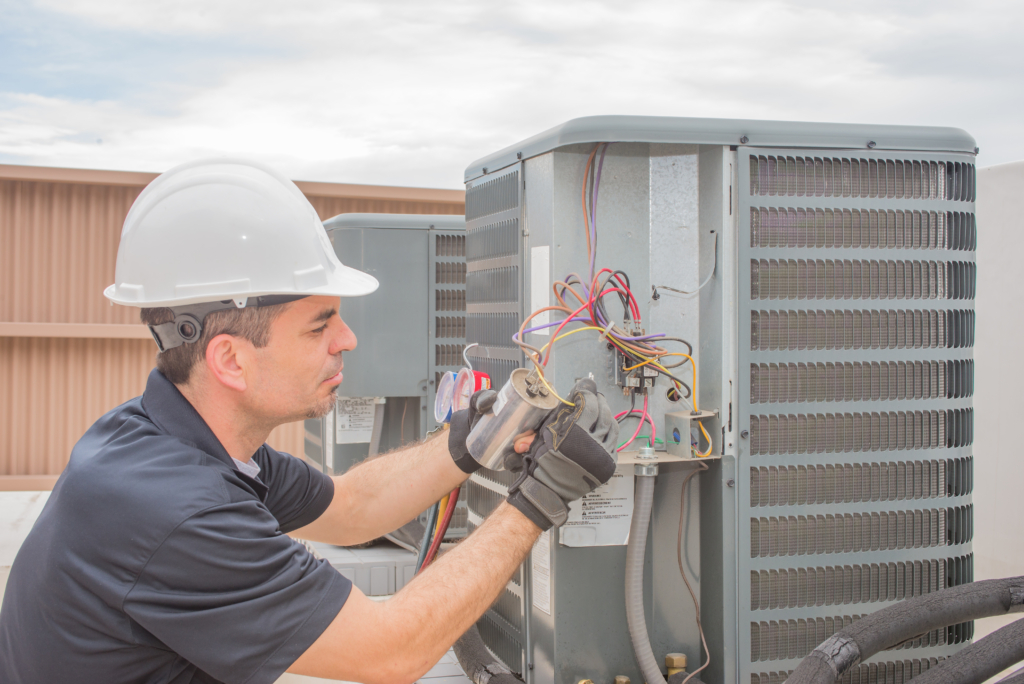Today’s reliable HVAC systems can provide any unsuspecting homeowner with the illusion of maintenance-free operation, much like the sealed transmissions in today’s most popular consumer automobiles. Automotive technicians and enthusiasts know that there is no such thing as a maintenance-free transmission. Furthermore, unlike those sealed automotive systems, equipped with multiple sensors and computers that send alerts before minor problems turn into catastrophic failures, every HVAC system is installed in a unique environment, with unique operating conditions and heating or cooling demands. Regular basic upkeep performed by the informed homeowner, combined with regular maintenance services performed by a factory trained technician at least once annually, is really the only way to ensure your system will keep running well into the future.
Basic Upkeep You Can (and absolutely should!) Do
The most important thing you can do for HVAC maintenance is to change the filter every month. Clogged filters trigger many serious problems, and shorten the life of your system. Expensive filters may promise several months of superior air filtration, and you can buy the expensive filters if you like, but don’t forget to change them often, and check them every month.
No HVAC system can survive with a clogged condensate drain line. If you don’t know where the drain line connects to your furnace or air handler, and where it exits your house, you should call your service provider today and schedule a visit. They will be very happy to show you how and when to perform this essential upkeep yourself.
When It’s Time To Call a Pro
Central air conditioning systems contain a high voltage electric compressor pump to pressurize the refrigerant. It also requires good quality refrigerant in the right quantity to lubricate its internal moving parts.
All refrigerants in use today in residential central air conditioners are known to contribute to accumulating atmospheric greenhouse gases. Older HCFC refrigerants still widely used also deplete our stratospheric ozone layer. Unless you are a trained and certified HVAC installer, do not perform any service that requires you to open or access any refrigerant lines. For more background on HCFC and HFC refrigerants, the EPA provides many resources for homeowners:
https://www.epa.gov/section608
https://www.epa.gov/ods-phaseout/phasing-out-hcfc-refrigerants-protect-ozone-layer
The electrical requirements of HVAC systems present major challenges to safe and effective DIY. We hope that by presenting this list, we are encouraging a healthy level of respect for your system, and that we have provided evidence to dissuade the homeowner or hobbyist from attempting anything beyond basic upkeep items.
- With your thermostat set lower than the interior temperature, if your fan blows air but the compressor isn’t running, call a pro. High voltage electricity and large capacitors inside the condenser pose a significant risk of electrocution.
- If you don’t know how to cut off power to your system, call a pro before you remove any panels to change filters or inspect the inside of your furnace.
- If you have opened your system, call a pro if you notice any corrosion, moisture, dirt, or debris. Consumer products tempt homeowners to try to address these issues, but they are not as safe or effective as professional service.
DIYers: respect the terms of the warranty covering your HVAC system. Not only do most of these warranties demand basic upkeep from the homeowner, they prohibit DIY disassembly and repair attempts to protect our safety.
At ADA Heating and Air, we are dedicated to providing fast and reliable service for your existing equipment. With over two decades of satisfied customers in Danville, Nicholasville, Versailles, Winchester, Harrodsburg, Stanford, Lexington and the surrounding Central Kentucky areas, we look forward to serving you.
